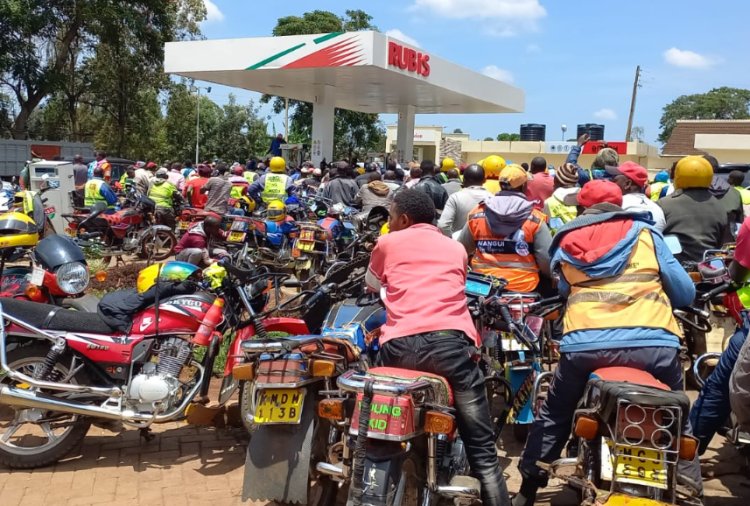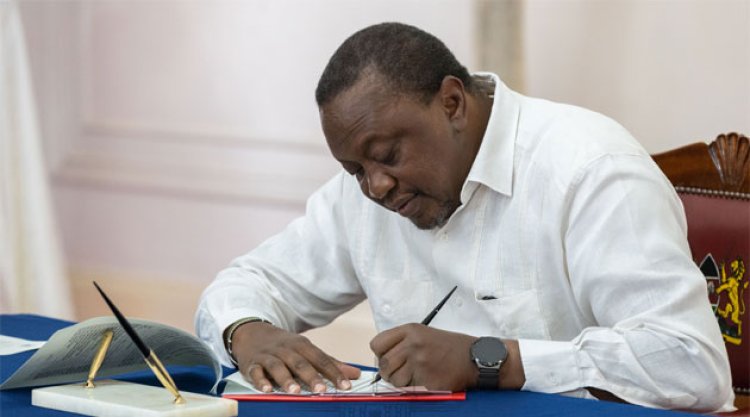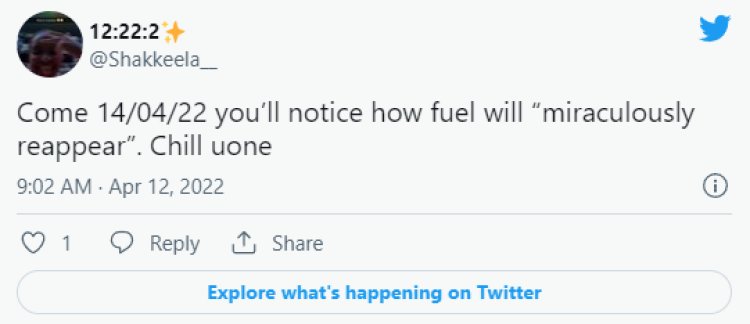Are Marketers Still Amassing New Oil Stocks?
The ongoing fuel crisis that struck Kenya three weeks ago has elicited conflicting reactions from citizens and leaders. Kenyans have questioned why fuel supply has not resumed normalcy despite the government's announcement that it had paid subsidy arrears to oil marketers.

When President Uhuru Kenyatta signed the first supplementary budget estimates for 2021-2022 into law, paving the way for the release of Ksh.34 billion to oil marketing companies (OMCs) on April 4, Kenyans felt this was a relief as they would be able to get fuel and return to normalcy. This has not been the case since the fuel shortage in the country has been seen to persist for more several days.

President Uhuru Kenyatta Signing the supplementary appropriation bill on April 4. PHOTO FILE
Sources also reveal that major oil players in the country are also said to be stockpiling new stocks in anticipation of a price increase in this week's monthly price review.

There have also been claims that oil marketers are stockpiling fuel in preparation for the upcoming Easter holiday, despite officials warning of dire consequences for hoarders.

The State has also made a move to start looking into some oil marketers after the prolonged widespread shortage of petroleum products at their outlets across the country, despite the availability of stocks at supply depots.
According to high-ranking government sources, Rubis among other filling stations in the country is one of those on the lookout for "unreliable supplies."
“We have surveyed outlets across the country and Rubis stands out as having some queer shortages and rationed sales,” a senior government official revealed.
“It’s worthy [noting] that other big marketers, such as Vivo and TotalEnergies, have sold a lot of products over the past two weeks and the discrepancy in product availability in outlets operated by particular marketers is a matter we’re concerned about,” the source added.
According to the Energy and Petroleum Authority (EPRA) inventory, the country had a total stock of 212 million litres of petrol and 188 million litres of diesel as of last Thursday, but marketers only took about 9.5 million litres of petrol and 11 million litres of diesel for sale locally and export.
Due to the current situation in the country, EPRA has ramped up its investigation into suspect export sales by some marketers.
“The data of exports is being compiled and we shall be seeking answers on how some marketers had stocks to ship out of the country but none to sell locally,” a source stated.
Oil marketers also expressed their concerns about losses during a meeting with Presidential aspirant Raila Odinga a few days ago. They wanted to know if the losses would be accounted for in the upcoming fuel pricing formula.
According to sources privy to this publication, there is only one fuel station between Siaya town and Kisumu City in the larger Nyanza area. As a result, motorists have been forced to travel as far as Eldoret in search of the commodity. Passengers and vehicle owners complained about being late for work after waiting for hours at the stations.


























